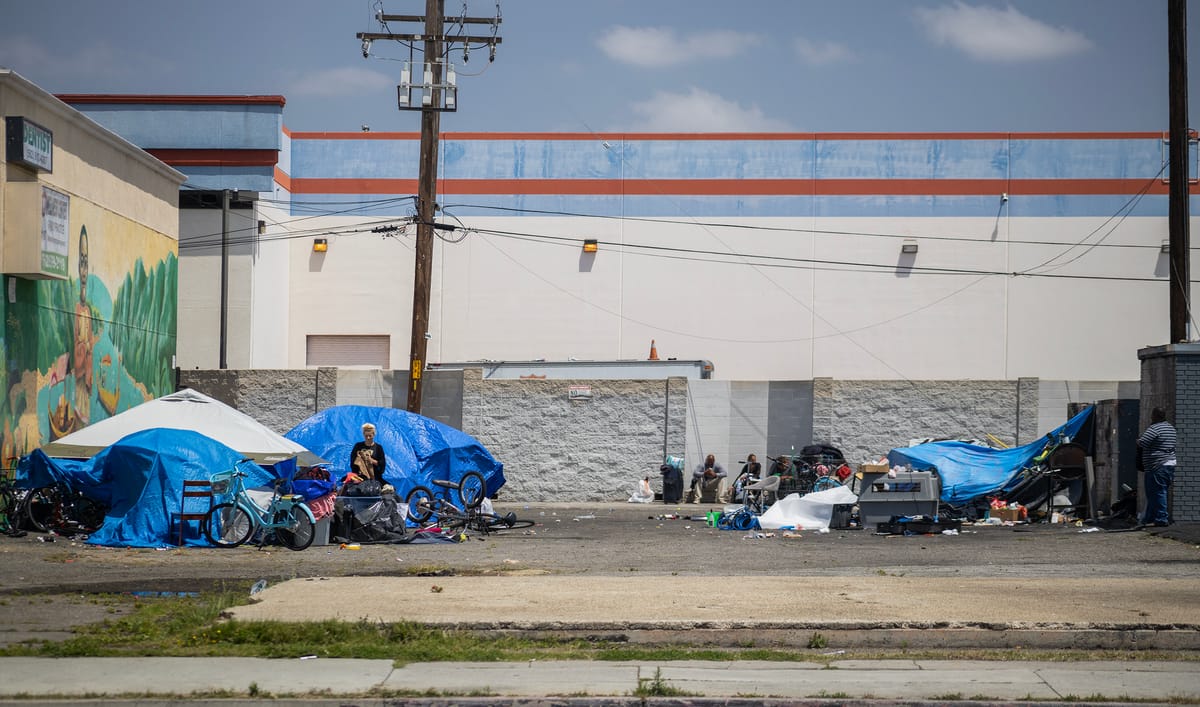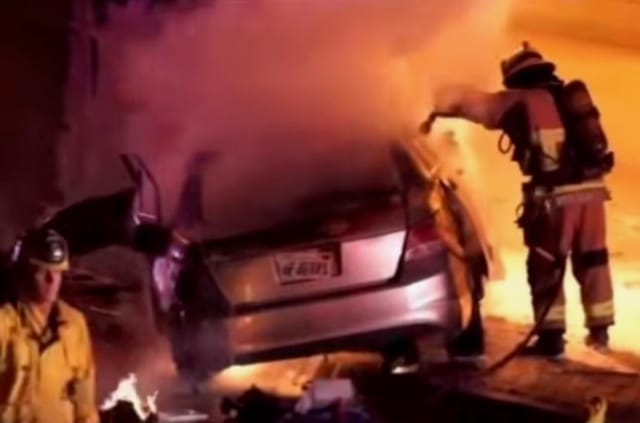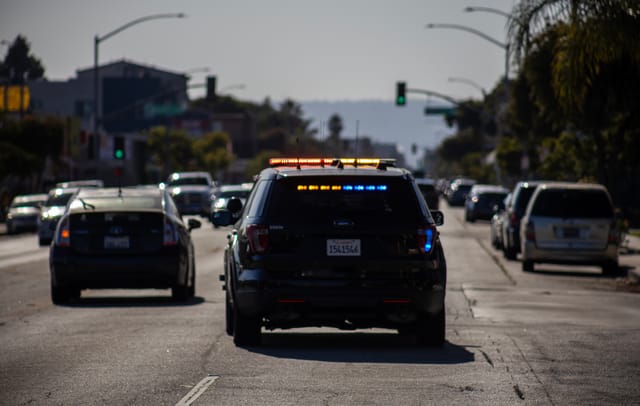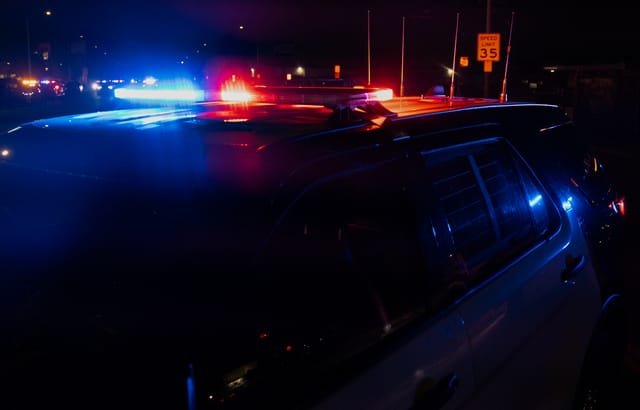Newsom calls on cities to 'move with urgency' to clear encampments
It is unclear how Long Beach will react to the executive order, which directs state agencies and cities to clear unhoused encampments.

Gov. Gavin Newsom issued an executive order Thursday that calls on state agencies to clear encampments in California and urges local governments to move with a “sense of urgency” to do the same to address public health and safety.
In a video posted on X, Newsom said that addressing encampments in the state has been frustrating because of the “impediments” of the court system. However, a United States Supreme Court ruling last month overturned an appellate court ruling that had blocked many western states from banning sleeping in public spaces unless they had adequate shelter space for the unhoused.
The ruling cleared the way for Newsom’s order Thursday.
“We’re done, it’s time to move with urgency at the local level to clean up these sites to focus on public health and focus on public safety,” Newsom said. “There are no longer any excuses.”
Newsom’s order will direct state agencies like CalTrans to remove encampments. The agency has jurisdiction over California’s highway system and the areas near it where unhoused people often set up tents.
However, the executive order cannot force local governments to do the same.
In the video, Newsom pointed to the roughly $1 billion in encampment resolution grants the state has issued to cities like Long Beach as evidence that the state has given local governments the support they needed to address homelessness.
Long Beach recently received one of those grants for the Lincoln Park and Billie Jean King Main Library area in Downtown. The $5.3 million grant is being used by the city to lease the Vagabond Inn on Alamitos Avenue to house people at the 60-room inn over the next year.
But the inn project and the city’s network of shelters and motels have not been enough to provide housing for the over 3,300 people last counted as unhoused in the city.
The city’s annual homeless count this year found 3,376 people in some state of homelessness, which was a 2% decrease from the previous year’s count. But of those counted, 2,455 were unsheltered (73%) and 1,705 (over 50%) were considered chronically homeless, which generally means a person has been unhoused for a year or longer.
In a statement released Thursday afternoon, city officials said they're monitoring legislation in the wake of the Supreme Court ruling to see how it will affect Long Beach. The statement also said the city is working on a comprehensive plan to address homeless encampments in the future.
"The City stands firm in its commitment of staying human centered by treating people experiencing homelessness with dignity, respect and compassion," says the statement, released by the City Manager's office. "Long Beach continues to focus on upstream prevention, increasing shelter capacity, and assisting people experiencing homelessness in their efforts to secure affordable permanent housing."
Councilmember Kristina Duggan, who represents Southeast Long Beach and has pushed the council for months to consider alternative enforcement measures for encampments, said the city should follow Newsom's order.
“I think Long Beach needs to answer the Governor’s call to act urgently to address encampments while respecting the dignity and safety of people experiencing homelessness,” Duggan said. “Long Beach can do more, and I will be looking to engage with residents in this discussion.”
Cities won’t have to comply with the order by law but the issue could become political and counties and cities that don’t comply with the governor’s directive could be boxed out of state funding opportunities in the future.
Residents have been pushing city leaders to do more about the unhoused population in recent years, specifically Downtown where the Metro A Line, beach bathrooms, broken windows and some high-profile attacks have roiled business owners and locals who say the quality of life in the area has deteriorated.
However, elected officials have pushed back on cracking down on encampments in favor of a more compassionate approach. Unlike the city of Los Angeles, Long Beach did not send a letter of support to the Supreme Court for it to rule in favor of giving local governments more latitude to enforce public camping laws.
Unhoused advocates are skeptical that the order will do much to help. Christine Barry, who’s helped connect numerous people living on the streets to housing, doubted that the city would enforce the new directive from the governor and questioned what would happen if it did.
“What does 'clear encampments' mean? We do that already but we just move them around,” Barry said.
Barry said the order isn’t being linked with any kind of solutions like housing or other supports. She says it would result in scattering the unhoused population. Asked whether she thought the directive could lead to a ripple effect where cities that don’t follow the order end up with more unhoused people pushed out by those that do, Barry said that’s already a reality.
“They’re already sending them here,” Barry said. “Am I concerned that this is going to send even more people here? They’re already sending them here.”
This story has been updated to include a quote from Councilmember Kristina Duggan and additional information from the city.
We need your support.
Subcribe to the Watchdog today.
The Long Beach Watchdog is owned by journalists, and paid for by readers like you. If independent, local reporting like the story you just read is important to you, support our work by becoming a subscriber.





